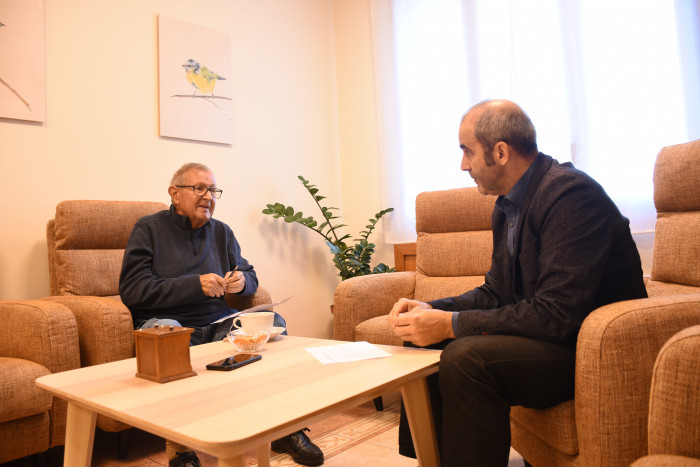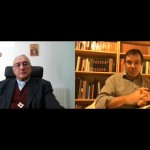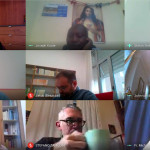It was in October, 1970 when for the first time, Fr. Maggiorino set foot on African soil. Now it has been 50 years since that first time. Due to the pandemic of COVID-19, together with other brothers in Angola, he returned to Italy. The experience of isolation at home and in the hospital was a difficult test, but lived in an atmosphere of love, in the certainty that God is love for all. We interviewed him.
Fr. Maggiorino, how did the desire to be a missionary come about and why did you choose Africa?
I did not choose to go to Africa. I lived the first years of my life and my youth both in my family and in the Congregation in a formative atmosphere of openness, dialogue and welcomeness. When in my third year of Theology, the superiors asked me what I wanted for the future, I expressed the desire to go abroad. In total availability, the answer was: Mozambique. Africa was new and big for me, much less problematic than I am seeing it now.
I retain the idea of Africa in a positive way. There have been many divisions and occupations in the past, as in other parts of Africa or Latin America. But from the very beginning I have been helped to enter the African soil. I did a two-year internship in Madeira with the aim of working in the pastoral field. The two of us left for Mozambique. It was October, 1970, exactly 50 years ago. It was a colonial time, a time of adventure. But when I arrived in Mozambique, I was inserted in a completely different field: training. This is also a response to availability.
What characteristics of the African Church have marked you most deeply?
I arrived in the post-conciliar period. We were already sensitized by the conciliar push of Vatican II. In Mozambique, I found a traditional church, intent on creating structures, with the figure of the missionary and catechist at its center. We created a ferment, gradual transformation. The reaction was not very positive and the older missionaries were not very enthusiastic about our way of seeing things. We, young missionaries, wanted to transform the church into a more dynamic, ministerial church; we wanted to do more formation and make people more co-responsible. This was a slow and gradual work, which led me to work also at the diocesan level, according to the mentality of Vatican II.
…but in Africa, people already had faith…
The African is a religious person, instinctively, deeply and extensively. To carry the Gospel, to evangelize is another thing. It is about grafting the evangelical path into the Church as a family, where everyone is co-responsible.
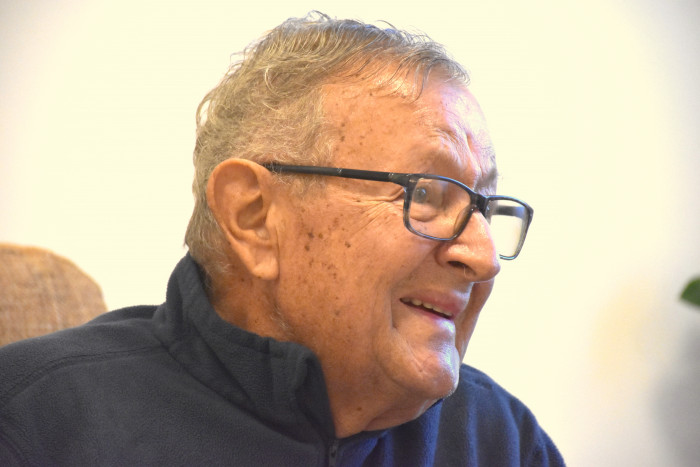
There is much talk about the fact that Africa will be the future of the Church in terms of vocations. What do you think?
Certainly Africa is experiencing a very strong dynamism on the religious and Christian level. Thanks also to the post-conciliar dynamic, the life of the Gospel permeates Christian communities more deeply. There are vocations both on the Christian level and in the seminaries, and this phenomenon is growing a lot. There are also contradictions. It is not easy to assimilate a novelty fermented by the Gospel. Nevertheless, I think that there will be a great future for Africa, at the service of others.
We must keep in mind that in this dynamic, the protagonist is the Holy Spirit. We help, collaborate, and try to share because the ferment of the Gospel can become the newness of life. But we must leave space for the Spirit of God.
You stayed in Mozambique for 34 years and then you went to Angola.
I lived for 16 years in Angola. The reality is quite different. Mozambique has remained more traditional, slow, and closed. Whereas, Angola, after the unification is a country more open to different experiences.
Where did you like to work more?
Ah..no… It is not a question of pleasure but of giving oneself. I have lived in many communities and in many different sectors. I have tried to be helpful and creative. I do not consider myself a genius, but I collect and raise as much as I listen. I wanted to create something new in the Dehonian missionary group that helps to change.
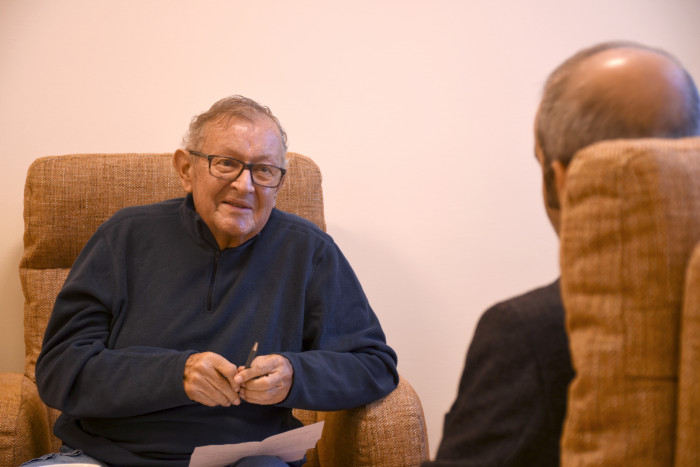
What advice do you give to young religious who wish to serve the Church in Africa?
Talking to others is always delicate. One must be oneself, have an authentic and strong human and Christian identity. In addition, to be very open, all this requires humility and dedication, the ability to walk with others, without being superiors or teachers. Dialoguing, dialoguing and daring…
There has been and still is talk of inculturation. In Africa, various cultures and traditions are mixed. What can you tell us?
Culture has values and limits. Because of its values it must be listened to, respected, valued, and it must enter into a constructive relationship with it. There are also limits, such as linguistic limits. I think that we must act with balance, without feeling superior. It is the Gospel that inculcates and ferments local values.
We are collaborators of the Gospel. Only the Gospel transforms, and we as collaborators must disappear and let ourselves be transformed.
Liturgical inculturation is a stage: there are things that work and others that do not. The important thing is that Africans become protagonists of their faith, of their culture according to the spirit of the Gospel.
We must always be available, in different ways.


